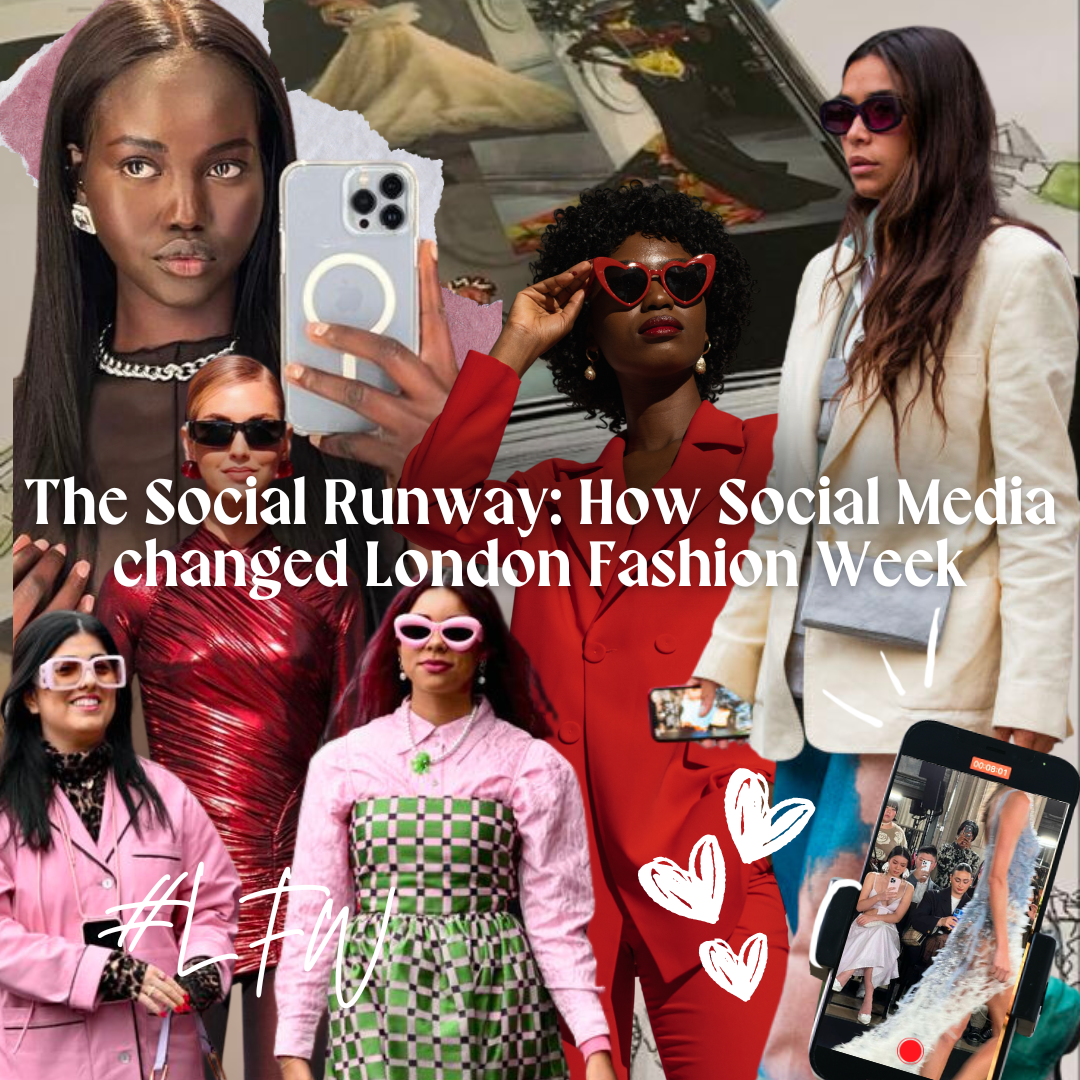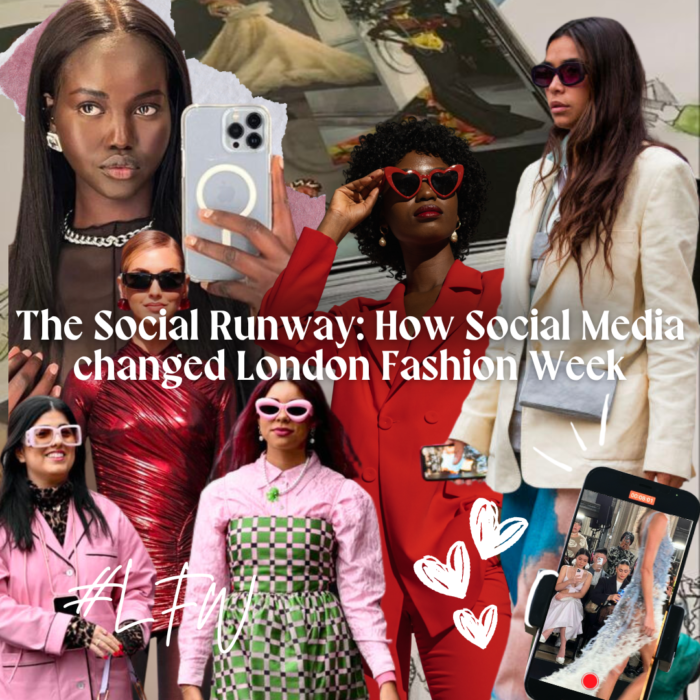London Fashion Week has always been a spectacle of style, creativity, and glamour. However, the landscape of LFW has changed dramatically in recent years thanks to social media. Instagram and TikTok have become platforms for attendees to showcase their LFW street style and for designers to build hype and give sneak peeks into their collections.
Instant Access and Global Reach:
One of the most significant effects of social media on LFW is its ability to provide instant access to the runway shows and behind-the-scenes action. Gone are the days when you had to be an industry insider or a VIP to catch a glimpse of the latest trends taking over the catwalk. Thanks to the power of platforms like Instagram, X, YouTube and TikTok, everyone with a smartphone and an internet connection can now be a front-row seat holder.
Influencer Culture:
Social media has fuelled the rise of influencer culture, where fashion content creators play a huge role in shaping trends and driving consumer engagement. During LFW, influencers are often invited to attend shows and provide their followers with exclusive insights into the latest collections. The last few years have also seen influencers taking over the front row, and with TikTok stars like Emma Chamberlain, Dixie D’Amelio and Sabrina Bahsoon (AKA Tube Girl) attending, and even walking in fashion week shows.
Real-Time Consumer Feedback:
Another impact of social media on LFW is its ability to facilitate real-time feedback from consumers. Designers and brands can now gauge audience reactions instantly through likes and comments, allowing them to adapt and refine their strategies on the fly. This direct line of communication has empowered brands to better understand their audience preferences, tailor their offerings, and even create deeper connections with their customer base.
The Rise of Digital Runway Shows:
In recent years, social media has paved the way for the emergence of digital runway shows, blurring the lines between physical and virtual fashion experiences. Burberry were the pioneers of this, being one of the first fashion houses to livestream their 2016 show on Facebook. Since then, designers have explored many more innovative ways to captivate audiences worldwide, from interactive livestreams to VR experiences.
Social media has also made the fashion industry accessible in a way that was previously unimaginable. With influencers and everyday fashion enthusiasts sharing their unique perspectives and personal styles, there’s a newfound sense of inclusivity in an industry that was once seen as exclusive and elitist. Suddenly, everyone has a voice, and everyone’s style matters.






